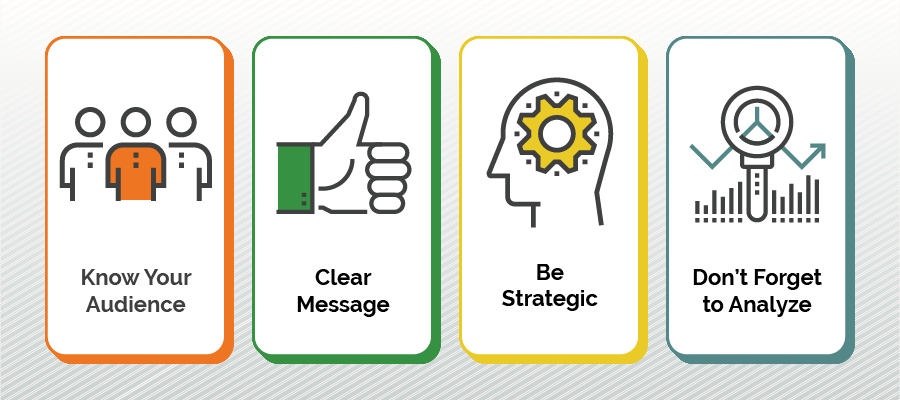Infographics
Infographics are powerful visual tools that simplify complex information into easily digestible formats, making them a popular choice in content marketing. By combining images, charts, and minimal text, infographics can convey detailed data in a way that’s engaging and easy to understand. They are particularly effective for breaking down complex topics or statistics into more manageable pieces, which is why they are frequently used in reports, presentations, and online content.
Examples of infographics include data visualizations that depict industry trends, process guides that outline step-by-step instructions, timelines that showcase historical developments, and comparison charts that help audiences quickly grasp differences between products or services. These visual representations are not only informative but also shareable, making them a valuable asset in digital marketing strategies aimed at increasing brand visibility and engagement.
The time required to create an infographic can vary greatly depending on its complexity. For simple infographics, where the data is readily available and the design is straightforward, the process might take just a few hours. For more intricate infographics that require custom graphics, extensive research, and careful design, the creation process can extend to several days. On average, a well-designed infographic can take between 8 to 12 hours to produce, from initial concept to final execution. Not only do they enhance the visual appeal of content, but they improve information retention and sharing, making them a critical component of a successful content marketing strategy.
These infographics play a significant role in content marketing by making complex information more accessible and engaging, conveying large amounts of data in a visually appealing way. By investing the necessary time and resources into creating high-quality infographics, businesses can significantly boost their content's impact and reach.
YouTube Videos
YouTube videos are a dynamic form of multimedia content in marketing that allows brands to connect with audiences through visual and auditory storytelling. As one of the most versatile content types, YouTube videos can range from educational tutorials and product reviews to vlogs and promotional material. This versatility makes them an integral part of a content marketing strategy, as they can effectively capture and hold the attention of diverse audiences.
Examples of digital marketing YouTube videos include how-to guides that teach viewers new skills, customer testimonials that build trust, brand stories that humanize a company, and product demonstrations that highlight features and benefits. These videos are particularly effective because they combine visual and auditory elements, making it easier for viewers to absorb and remember the information being presented. Additionally, videos are highly shareable, which can significantly increase a brand's reach and engagement.
The process of creating a YouTube video involves several stages, each requiring careful planning and execution. Pre-production includes scripting, storyboarding, and organizing logistics such as location and equipment. Production involves filming, which can range from simple one-camera setups to complex multi-camera shoots. Post-production includes editing, adding effects, sound design, and finalizing the video for publication. The time it takes to produce a YouTube marketing video can vary greatly depending on its complexity. Simple videos may be completed in a matter of hours, but more intricate productions can take several days or even weeks. On average, creating a well-produced YouTube video might take between 10 to 20 hours from start to finish.
YouTube videos are essential in content marketing due to their ability to deliver engaging and compelling messages. They can drive conversions, enhance brand awareness, and appeal to the preferences of modern audiences who increasingly favor video content. The investment of time and resources in producing high-quality YouTube videos is often rewarded with increased visibility, engagement, and business growth.
Email Marketing
Email marketing content is a highly targeted form of communication that allows businesses to connect directly with their audience. By sending tailored messages to a specific list of subscribers, companies can nurture leads, engage customers, and drive conversions. This makes email marketing one of the most effective tools in a content marketing strategy, as it provides a direct line of communication with potential and existing customers.
Examples of email marketing content include newsletters that keep subscribers informed about the latest company news, promotional offers that encourage purchases, product announcements that highlight new arrivals, and personalized messages that foster a deeper connection with the audience. Each type of email marketing serves a specific purpose, whether it's to educate, inform, or persuade, and all are designed to build relationships and encourage action.
The creation of email marketing content involves several steps, each requiring attention to detail. The process typically starts with strategy and planning, where the goals of the email campaign are defined, and the target audience is identified. Next comes the content creation phase, which involves writing compelling copy, selecting images, and designing the layout. Once the content is ready, it is tested for effectiveness, ensuring that it renders correctly across different email clients and devices. Finally, the email is scheduled and sent out to the targeted list. The time it takes to produce an effective email marketing campaign can vary, but on average, it might take between 4 to 12 hours to create a well-crafted email, depending on its complexity.
Email marketing is crucial for building and maintaining relationships with customers. It allows for personalized communication, which can significantly increase engagement and conversion rates. Additionally, it helps in creating brand awareness and keeping your audience informed about new products, services, or company updates. By investing time and effort into creating high-quality email marketing content, businesses can achieve substantial returns in terms of customer loyalty, sales, and brand reputation.
Importance of a Content Marketing Plan
A well-structured content marketing plan is essential for building trust, creating brand awareness, and driving conversions. Understanding user and search intent is key to crafting content that resonates with your audience and increases visibility. A strategic content marketing approach ensures that your efforts are aligned with business goals and that you consistently deliver valuable, engaging content that meets your audience’s needs.
Key Takeaways & Recap
- Know your audience: Tailor your content to the preferences and needs of your target market.
- Have a clear message: Ensure your content is focused and communicates your key points effectively.
- Be strategic: Plan your content creation timeline and approach to align with your marketing goals.
- Don’t forget to analyze: Regularly review your content's performance to refine and optimize your strategy.
By following these practices, you can develop a successful content marketing plan that drives measurable results! Need help? Reach out to the content experts at Zero Gravity Marketing.














